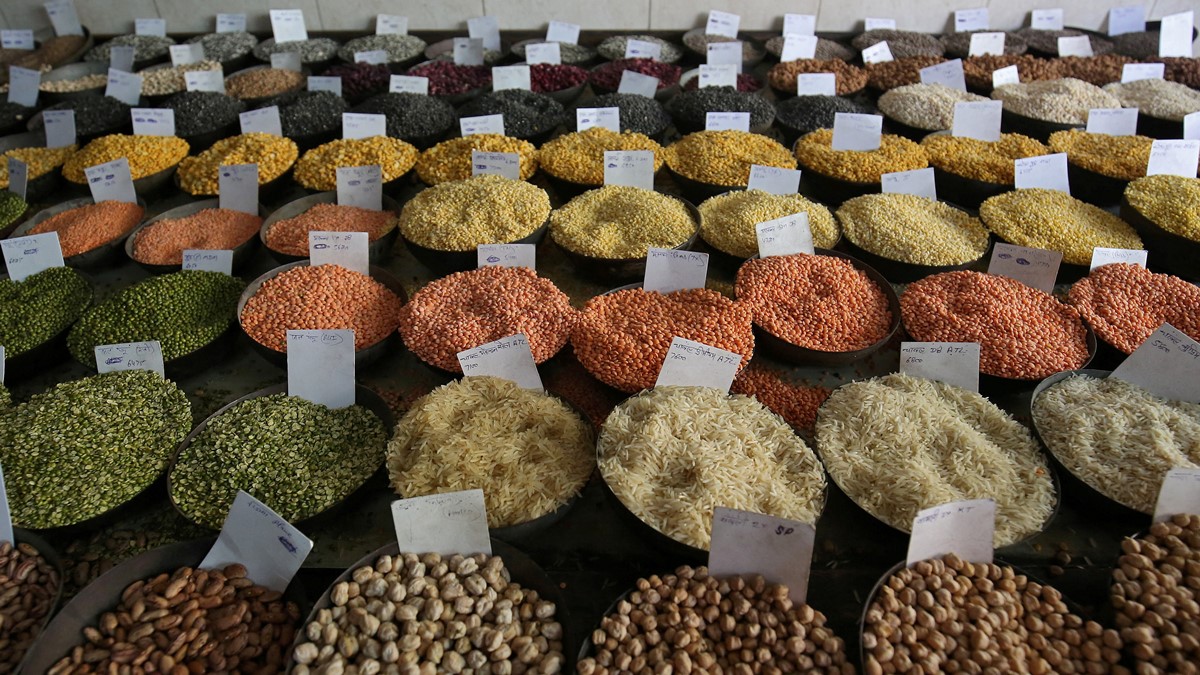The government on Thursday extended duty-free imports of tur and ural dal by a year till March 31, 2025, as it sought to avoid another spurt in retail prices of these mass-consumption pulses varieties.
Consumption of these two pulses and masoor are heavily import-dependent. Import duty exemption for massoor was extended to the end of next fiscal last week.
According to department of consumer affairs, in 2023, India has imported 2.28 million tonne (MT) of pulses – 1.08 MT (masoor), 0.77 MT (tur or pigeon pea) and 0.42 MT (urad or black gram) mostly from Australia, Canada, Myanmar, Mozambique, Tanzania, Sudan and Malawi so far.
As per an estimate, about 15% of domestic consumption of pulses – mostly tur, urad and masoor is met through imports.
The mandi prices of tur dal on Thursday at Latur, Maharashtra, the hub of the trade, was ruling around Rs 9400/quintal against the minimum support price (MSP) of Rs 7,000/quintal for the 2023-24 season (July-June). Traders say that the prices are expected to rule above the MSP for the season.
Officials said that due to a mismatch between production and consumption, mandi prices of tur have been ruling above MSP for the last couple of years. Nafed has been unable to carry out MSP operations for creating a buffer for tur dal because of higher prices.
The modal retail prices of tur and urad, according to the department of consumer affairs rose by 33% and 9% to Rs 160/kg and Rs 120/kg respectively on Thursday compared to prices prevailing six months back.
Inflation in pulses category rose to 20.23% in November from 18.7% in October this year while arhar and urad varieties of pulses reported a price rise of 42.3% and 11.8% respectively.
The government has also imposed stock holding limits on tur and urad which is currently valid till December 31, 2023.
Earlier India had signed an MoU with Mozambique for import of 0.2 MT of tur annually for five years when the retail prices of tur skyrocketed to Rs 200 a kg in 2016. This MoU was extended for another five years in September, 2021.
In 2021, India entered into MoUs with Malawi and Myanmar for the import of 50,000 tonne and 0.1 MT of tur per annum, respectively, till 2025. India also has an arrangement with Myanmar for annual import of 0.25 MT of urad.
To ensure that farmers’ get remunerative prices and creation of a buffer, the government will soon start procurement of tur dal which is currently ruling above the minimum support price (MSP) through a ‘dynamic price’ formula.
Agencies such as National Cooperative Consumers Federation (NCCF) and farmers’ cooperative Nafed will purchase the pulse variety directly from farmers or primary agricultural credit societies at a price derived on the basis of prevailing mandi prices of one week duration.
Similar mechanism for procurement is expected for urad dal as well, sources said.




